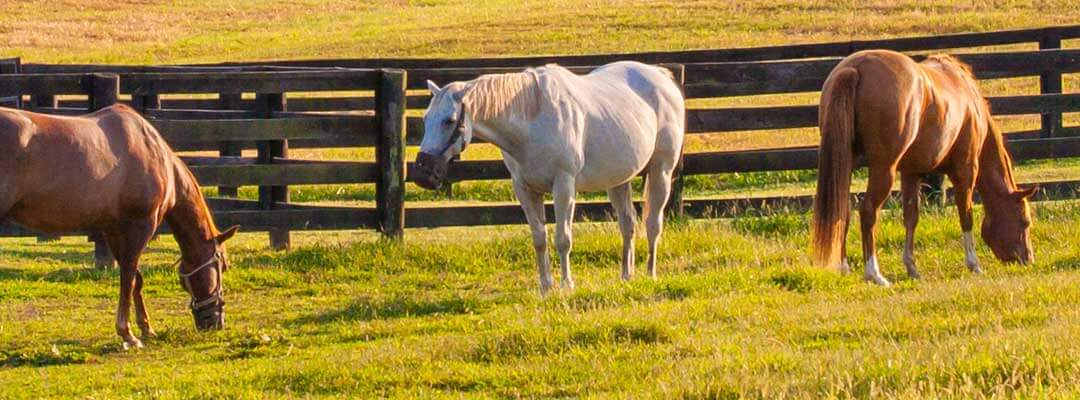On to Safer Pastures: Protecting Horses from Poisonous Plants
Written by Valley Vet Supply

Oklahoma State University professor, Extension equine specialist details poisonous plants impacting horses, shares harrowing first-hand account
The pastures were recently cleared from overgrown trees and brush, and Kris Hiney, PhD, Oklahoma State University assistant professor and Extension equine specialist, closely looked over the brush piles to make sure no poisonous plants or trees had surfaced. "All clear," she thought as she let her two horses back into the field.
"The very next day, they were already showing toxicity symptoms," Dr. Hiney said. "It turns out I did have black locust trees in the pasture, and when the horses had a chance to get to them, it almost killed them. I called my vet and said, 'This isn't colic. This is toxicity. And I need you here now.'"
Of the two horses, one had lower tolerance to the toxic tree. His heartrate was elevated over 90 for a full 24 hours and to save his life, he required three days of supportive care in the veterinary clinic. Luckily, both horses survived, but the situation could have been life-ending, if Dr. Hiney was not familiar with poisonous plants and signs of toxicity.
There are many poisonous grasses, plants and trees that can gravely impact horse health, such as black locust trees, Johnsongrass, white clover, maple trees, locoweed, tansy ragwort and black walnut trees. Fescue grass can be toxic to broodmares and their foals, causing thickened placentas and even abortions. Look to this University of Minnesota poster for pictures of poisonous plants and to better understand signs of toxicity.
Know these common toxicity symptoms:
If horse owners fear their horse might have ingested a poisonous plant, "Call a veterinarian immediately," Dr. Hiney said. "If horses do not receive the right care, toxicity can be a big deal. Death is often a real possibility."
As the weather affects forage available to horses in turnout situations (especially with summer drought or winter conditions), horses are more inclined to ingest unfamiliar plants or leaves. To help prevent plant toxicity, make sure horses have adequate rations of quality hay or grass in front of them. Dr. Hiney encourages horse owners to work closely with their county extension agent to identify potentially harmful grasses, plants or trees that may surface in their pastures. Horse owners can also invest in a spray system to eliminate unwanted plants and weeds.
"Anytime there is something novel in their pasture, horses are going to investigate it," Hiney warned. "I thought everything in my pasture was safe, but it turns out I was wrong. Be very careful, and take a look at what now is accessible to the horses, because they will take advantage."


